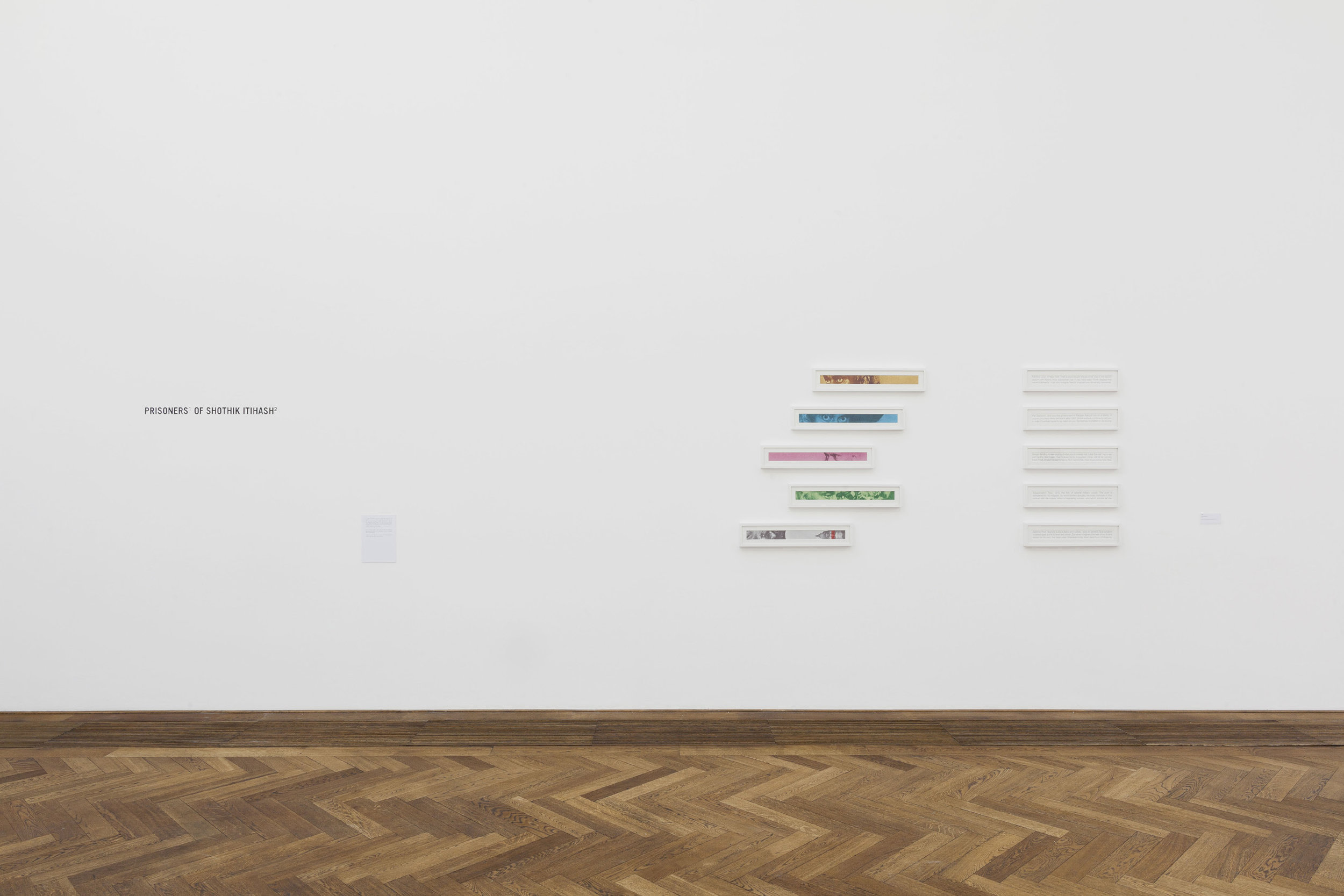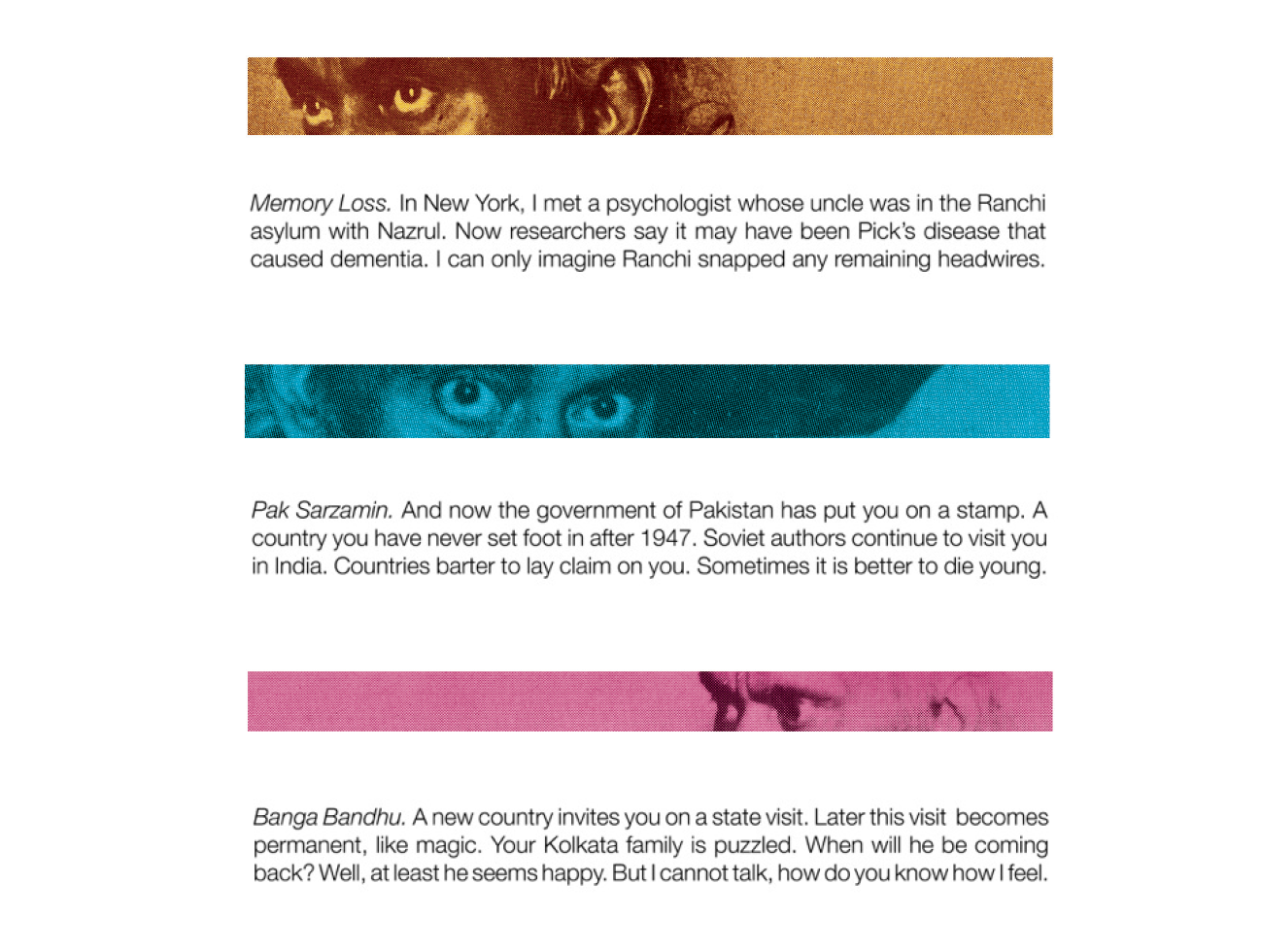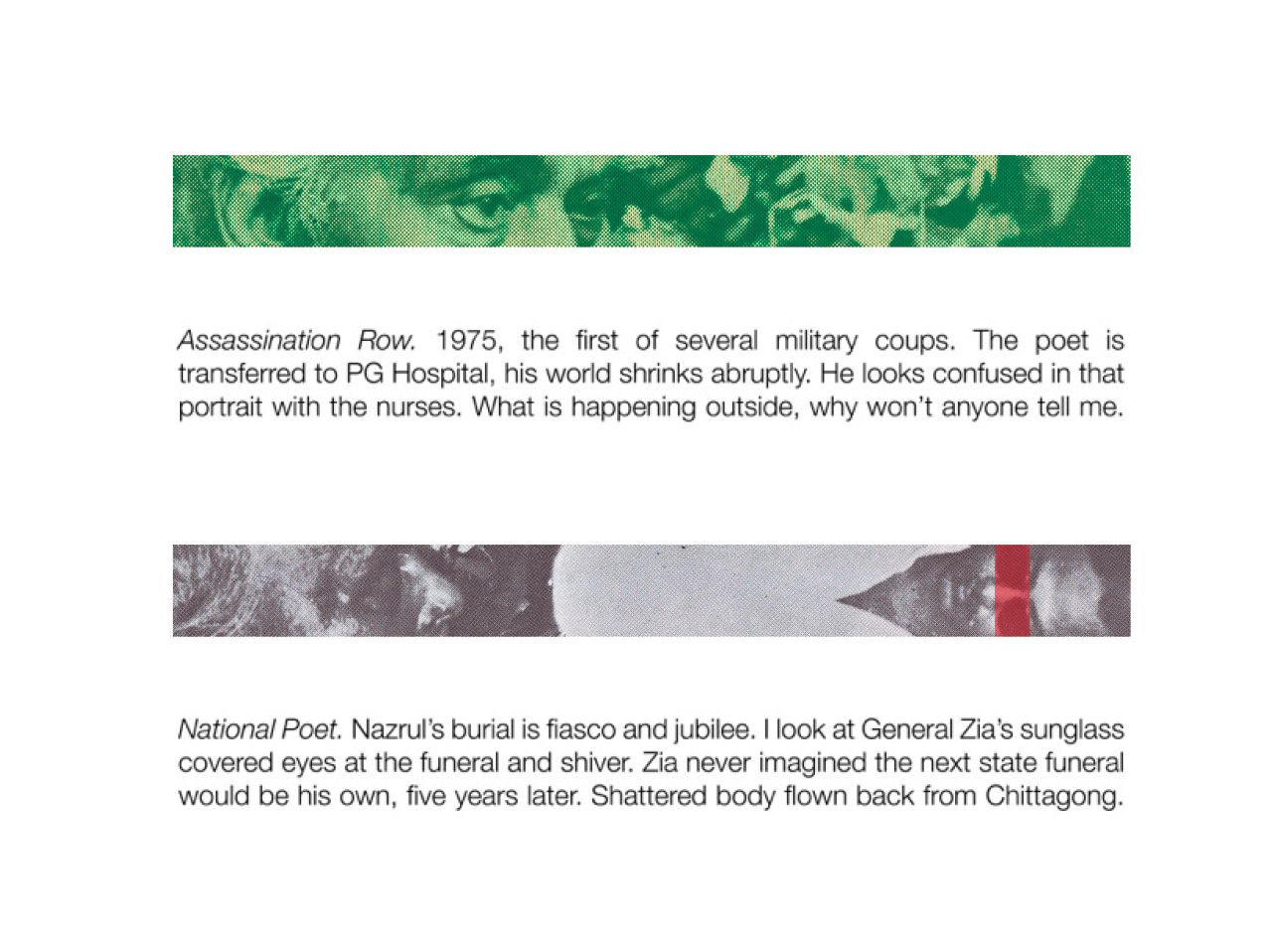KAZI IN NOMANSLAND [2008]




Look at them kissing Quran, Veda, Bible / Snatch away holy books from those charlatans / While you beat those humans who are the meaning of holy books / You continue blind worship of only books, you charlatans / Humans brought book, no book ever created human [Manush]
A mute Nazrul stays in India after '47, voting with body against Pakistan. But even at a distance, he is used for shaping new boundary stories. On the Indian side, he is a symbol of the syncretic Muslim who imbibes Hindu culture, but the dark cassandra of his songs about religious divisions are forgotten. In Pakistan, the state actively crushes "Hindu tendencies" in Bengali culture and music, for which they need to rebrand Nazrul as a Muslim poet. In official reprints, words disappear or shift. In anti-British marching song Chal Chal Chal, "we will brighten the cremation ground" is now "Muslim graveyard"; in Boatman Beware, the stanza "Who dares ask/If they be Hindu or Muslim?" simply vanishes.
Where unite Hindu-Buddhist-Muslim-Christian / Who are you? Parsee? Jain? Jew? Saontal, Bhil, Garo / Confucius? Charbak-Chela? Keep listing all your names, be anything you please / In your heart and head, carry whatever books you value / Quran-Puran-Veda-Vedanta-Bible-Tripitak [Samyabadi]
In 1971, Pakistan launches a genocidal crackdown on Bengalis of East Pakistan. A second partition and a new country, Bangladesh. India flies Nazrul to Bangladesh as a goodwill gesture to new leader Sheikh Mujib. A temporary visit becomes a new home.
Mujib is killed in a military coup in 1975. Nazrul is now moved to semi-house arrest at the PG hospital. When Nazrul dies a year later, the new military regime of General Zia refuses the family demand to bury him in India. Instead his funeral in Dhaka is used to cement the army’s hold on nationalist narrative. Nazrul who fought against Partition becomes an ingredient in a Saudi-supported, Military-led Islamization project in Bangladesh.
Other religions, other temples / You never commanded any destruction / Today we cannot tolerate any other belief / Forgive us O Prophet!
[Khoma Koro Hazrat]
Paper sculpture with postage stamps | India: 2.8 x 4 cm | Bangladesh: 3.8 x 4.5 cm | Pakistan: 3.4 x 4.2 cm
Archival print on paper | Image 3.5 x 25 in each | text 3.5 x 20 in each